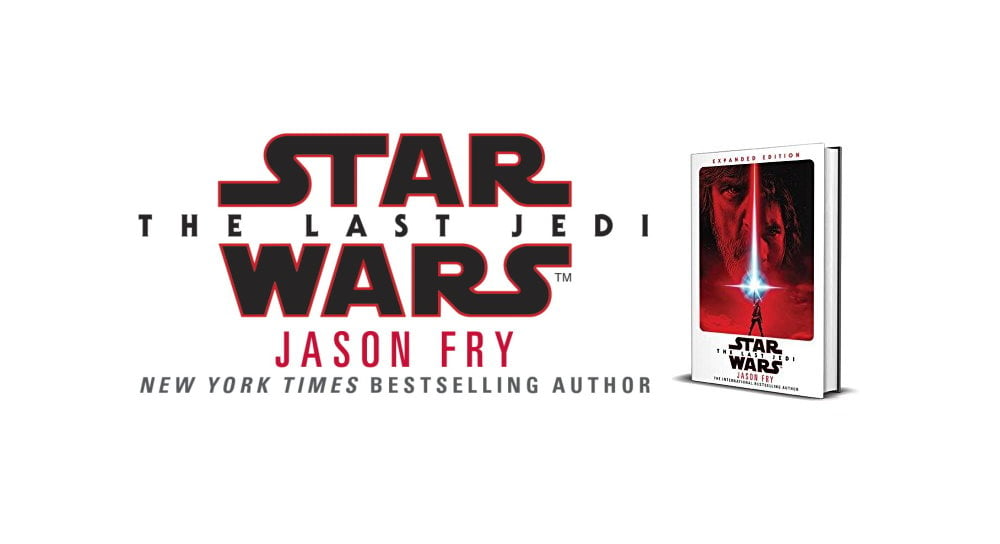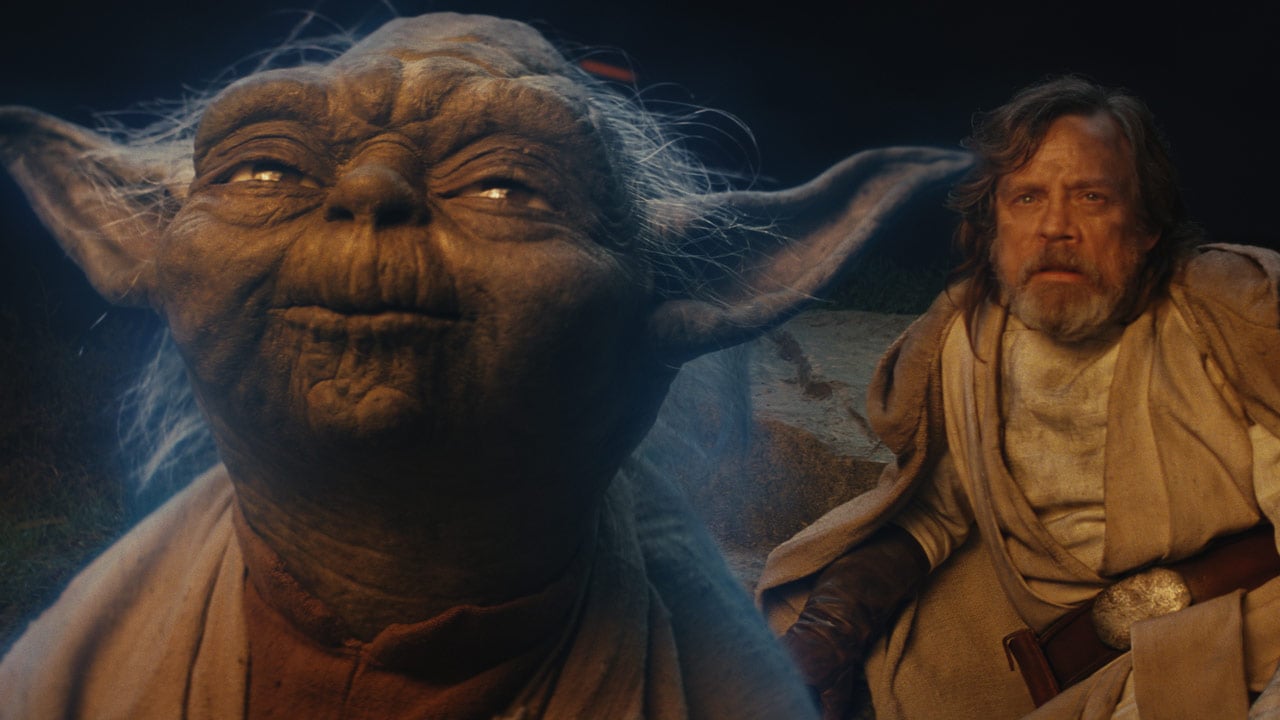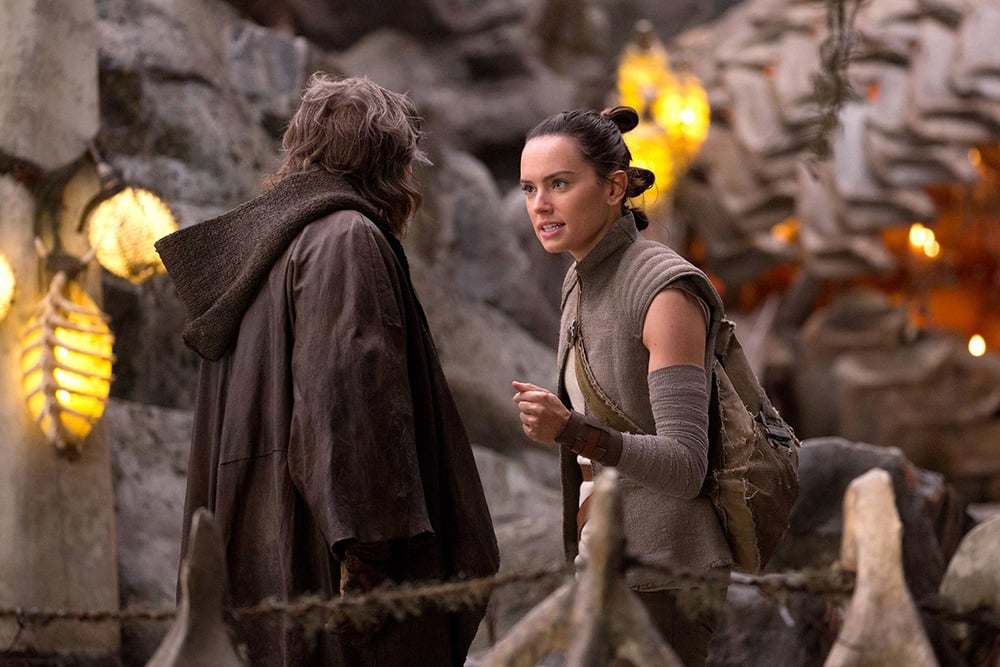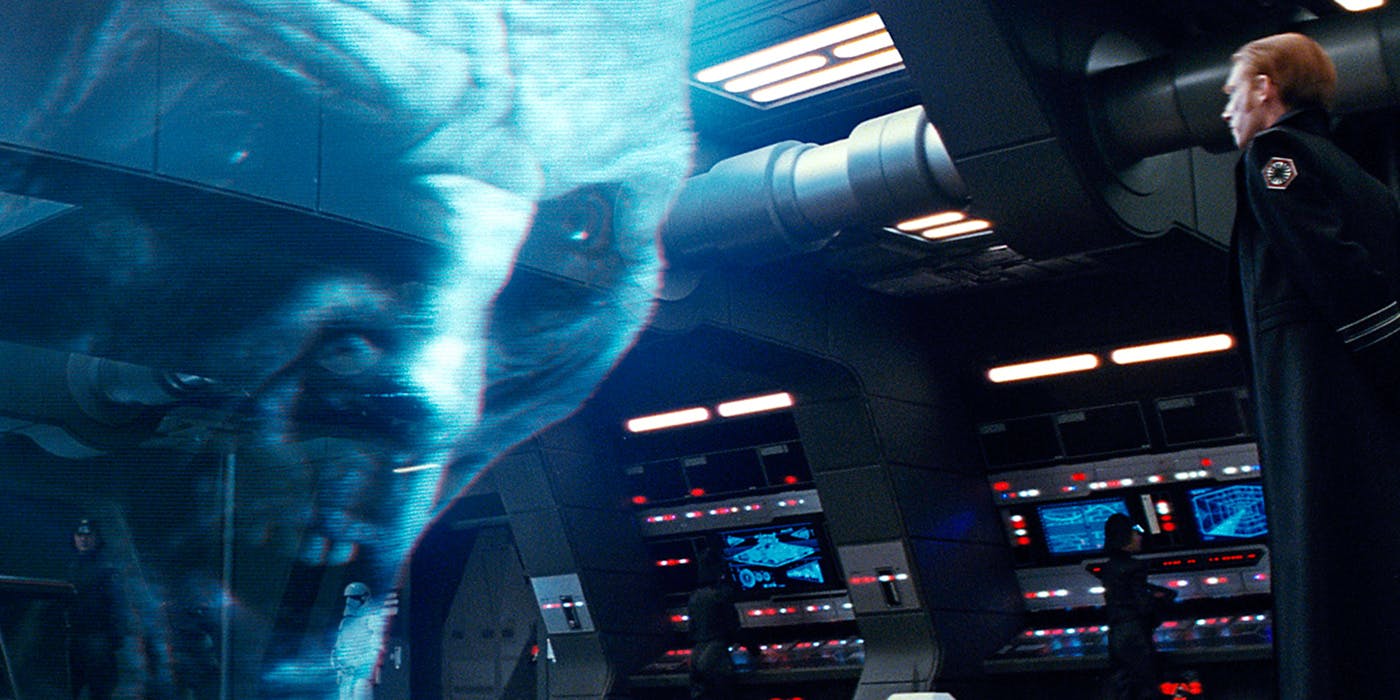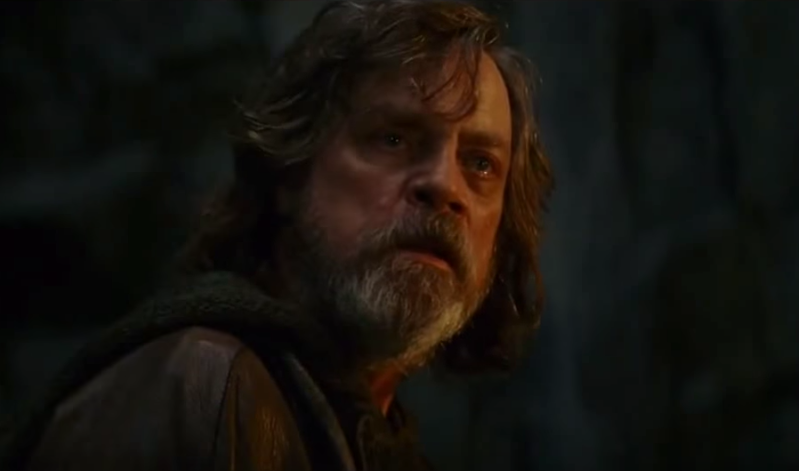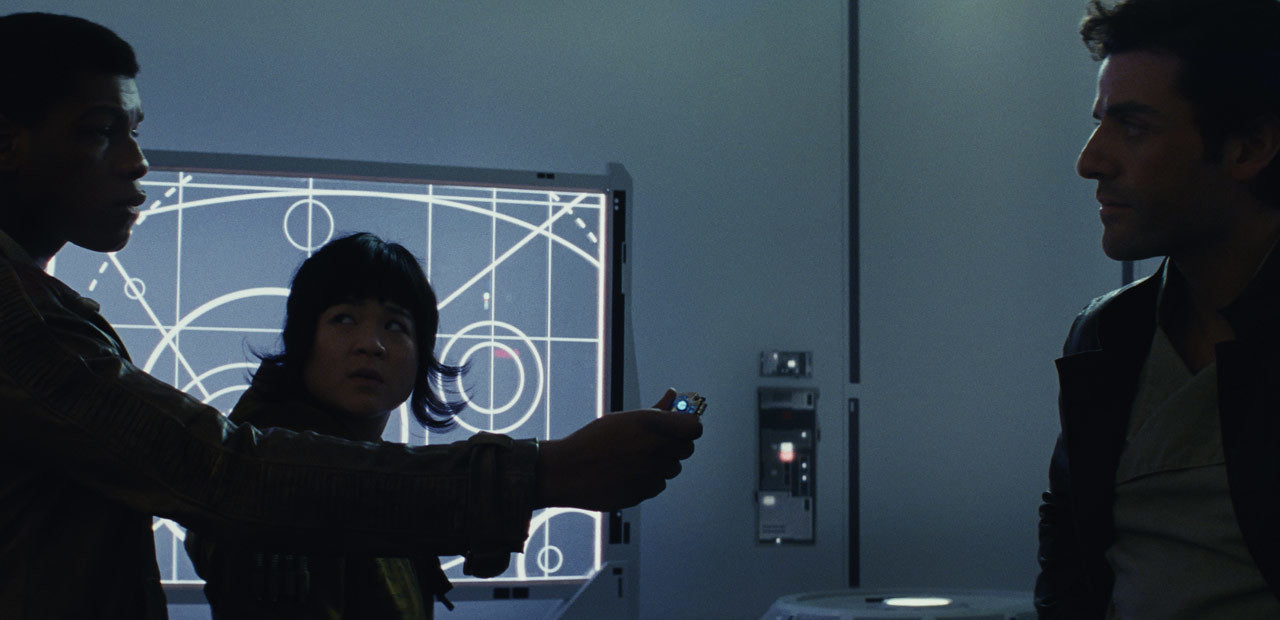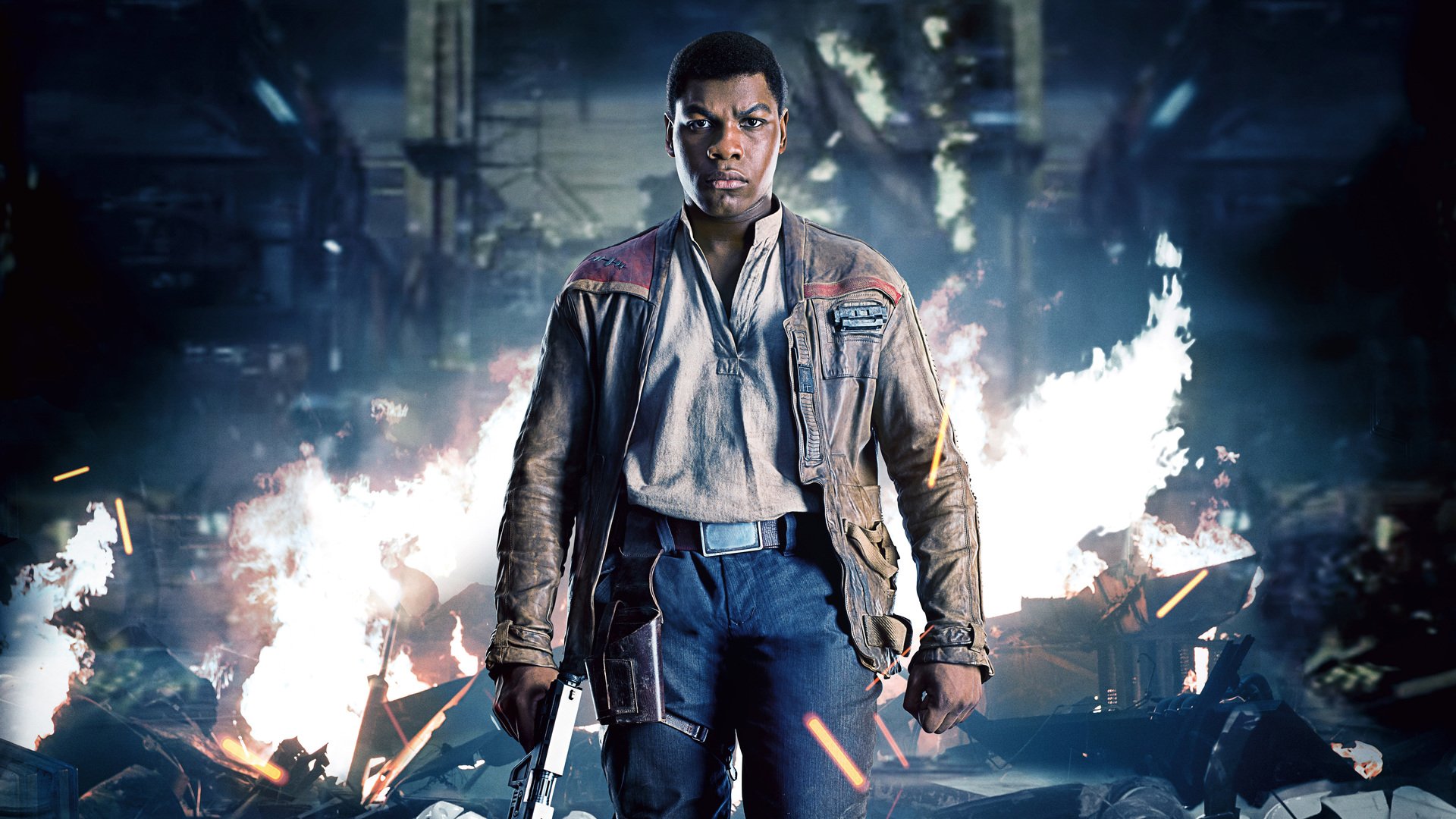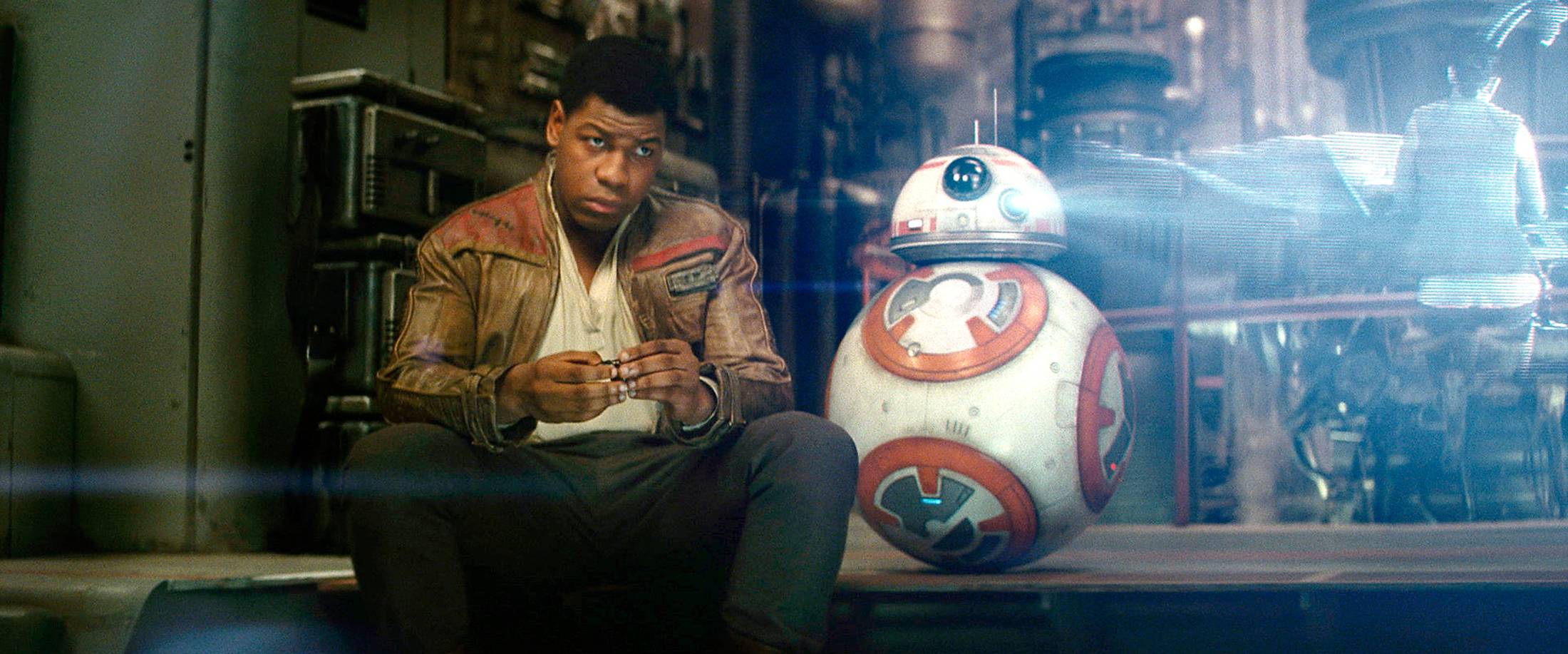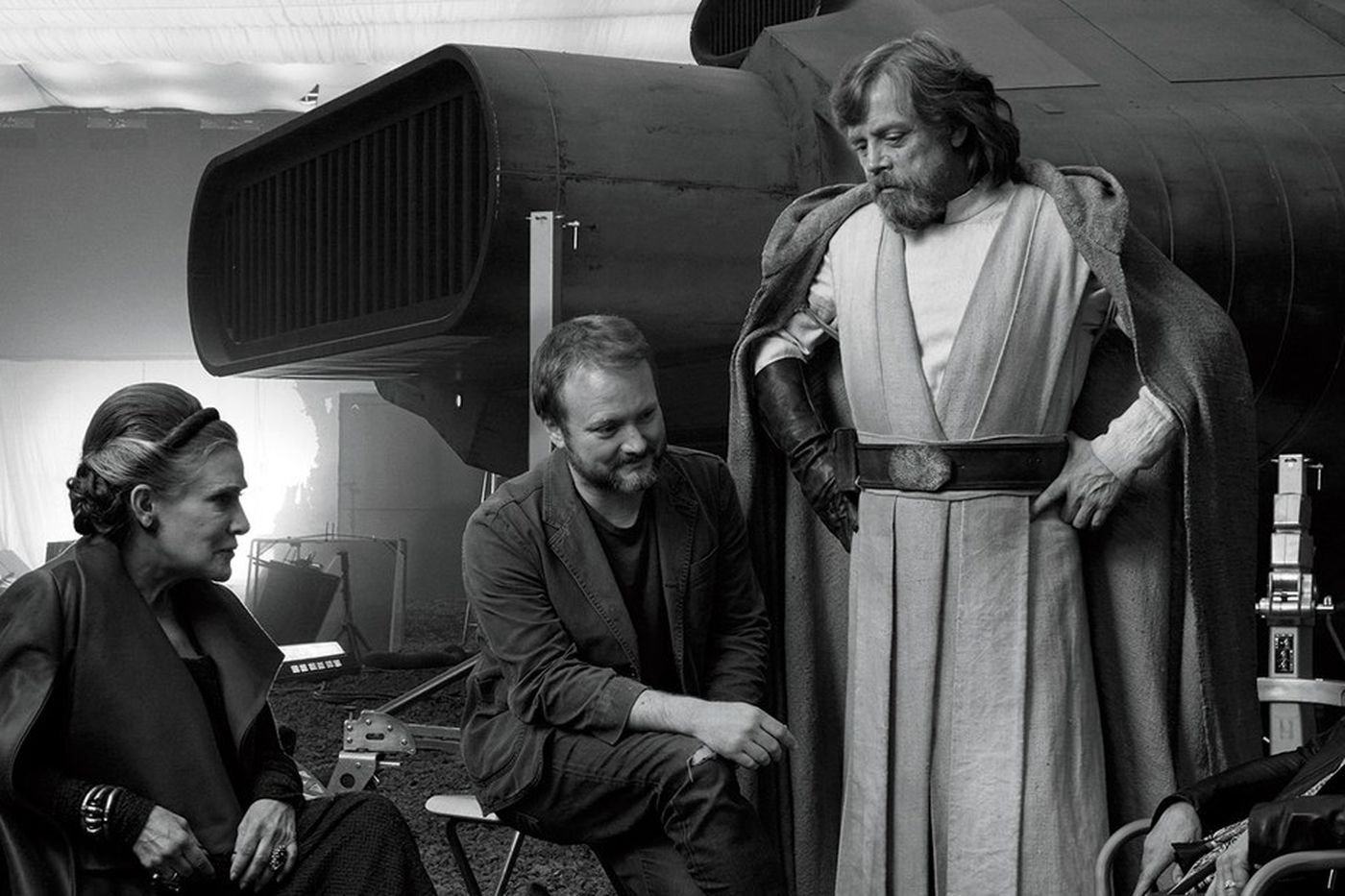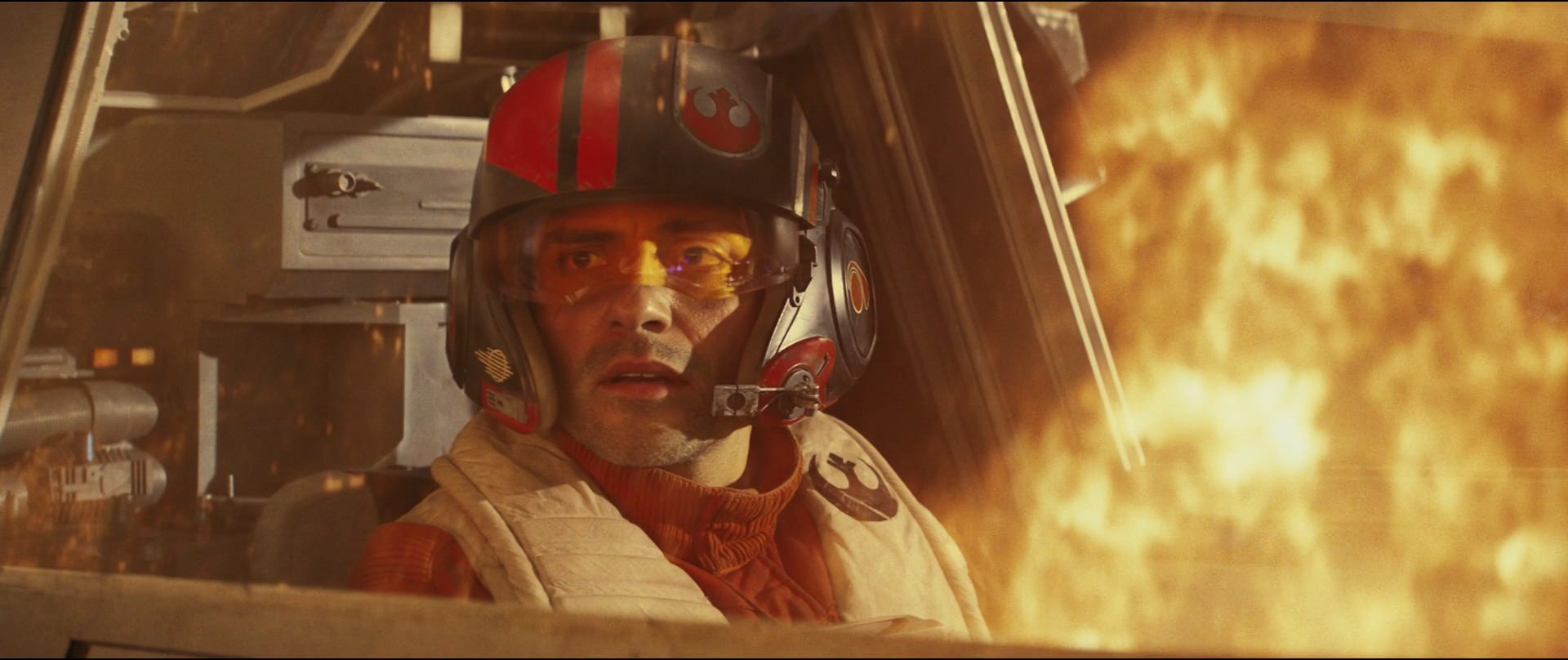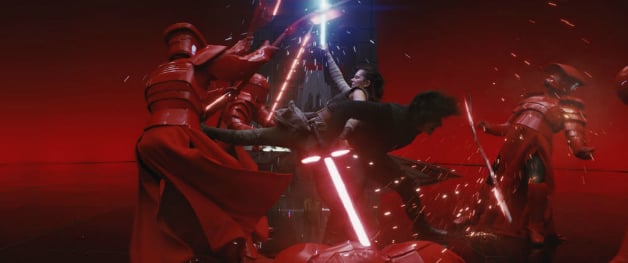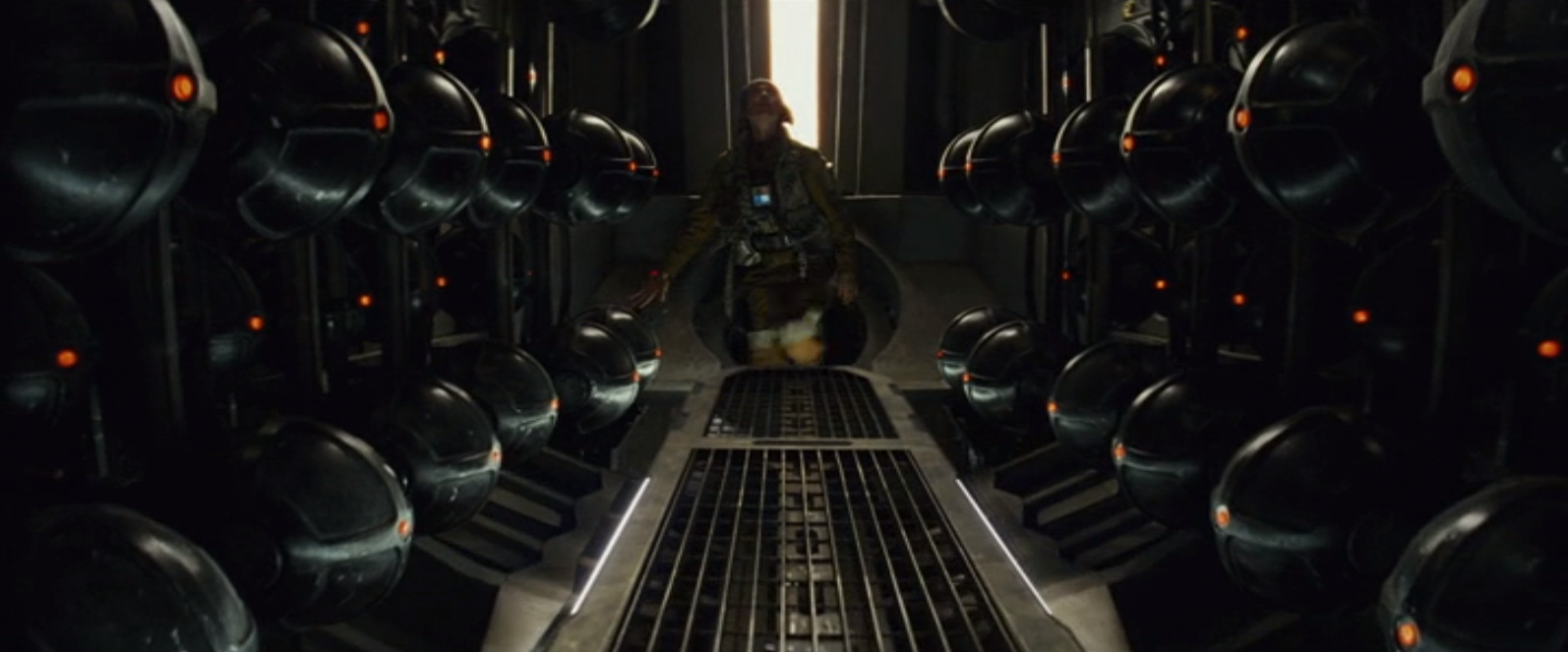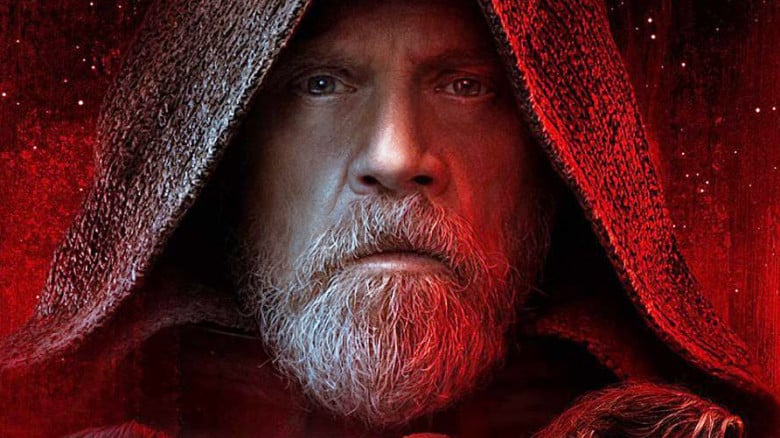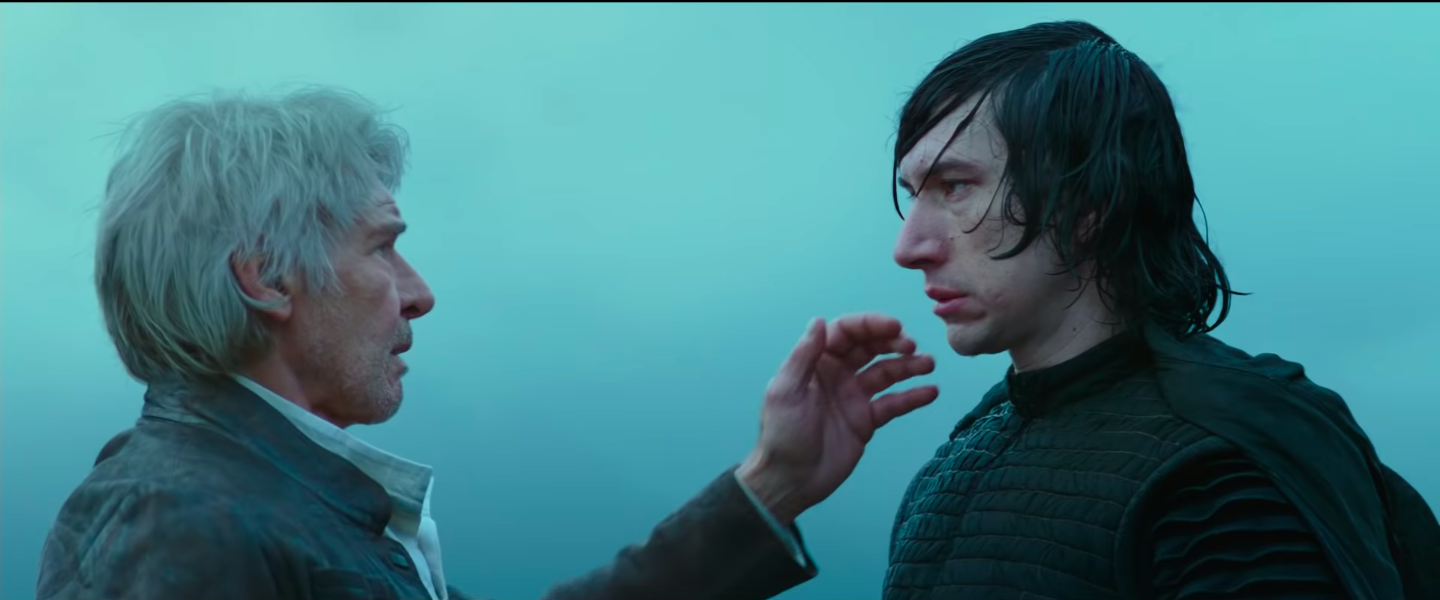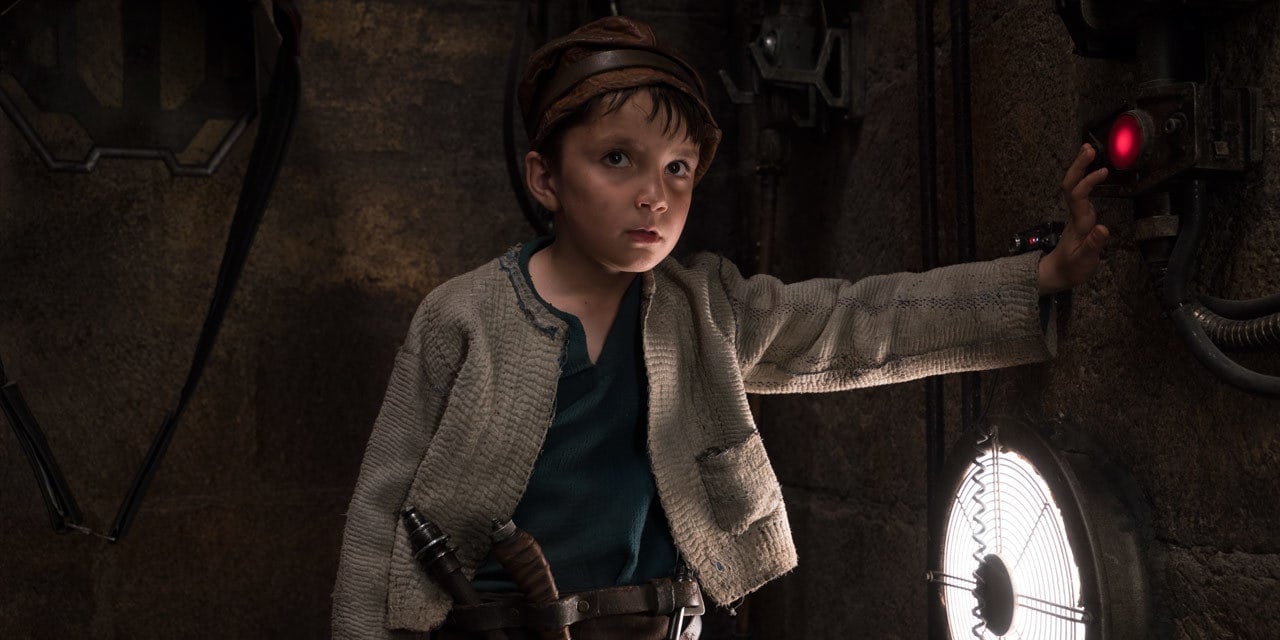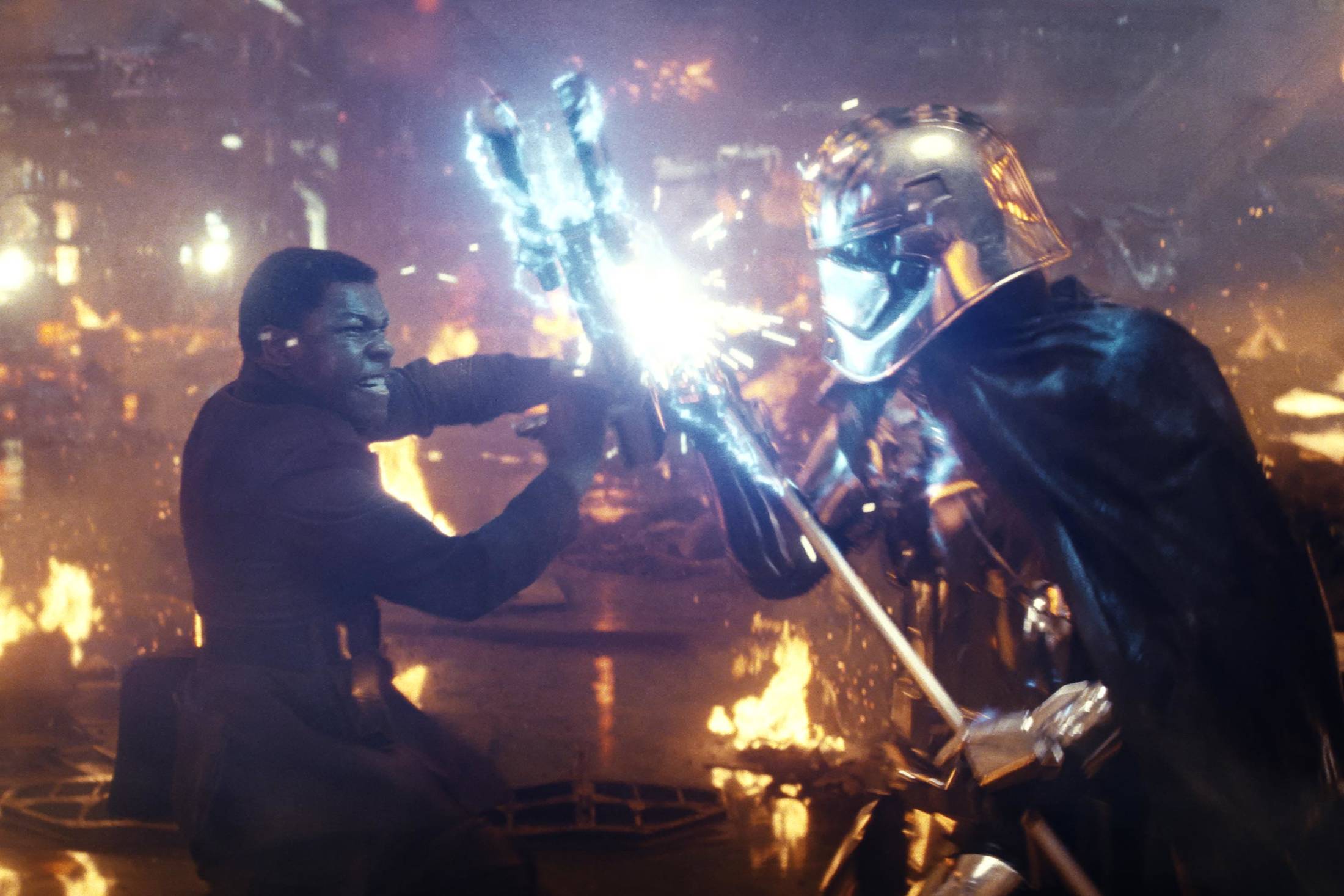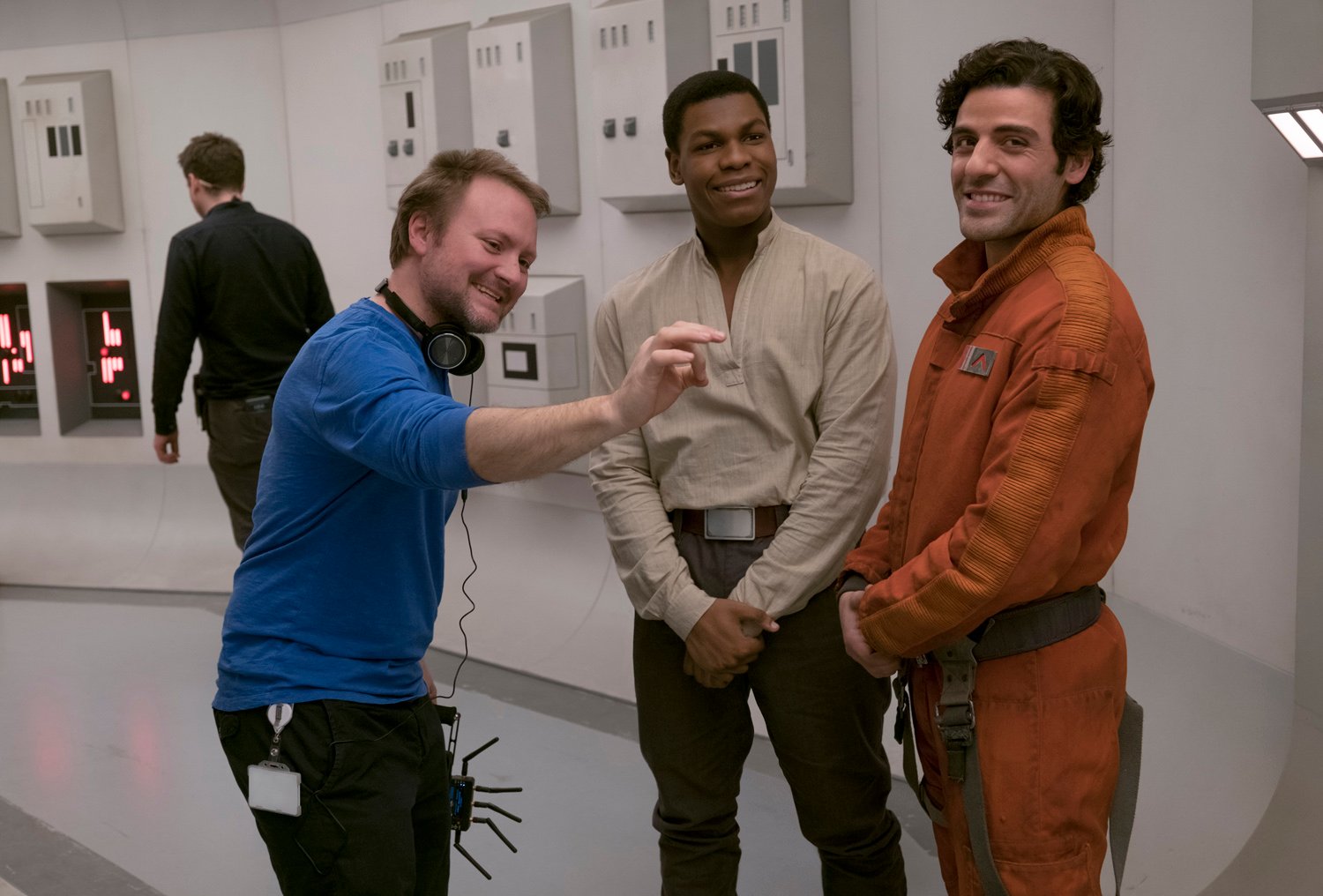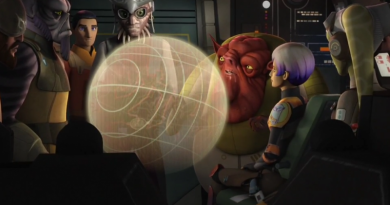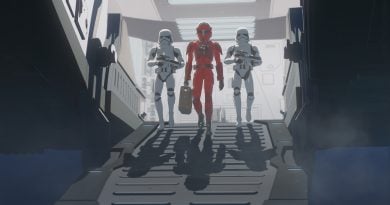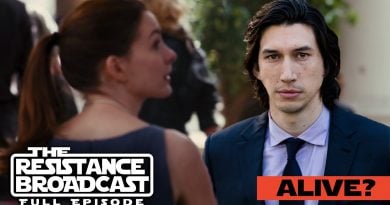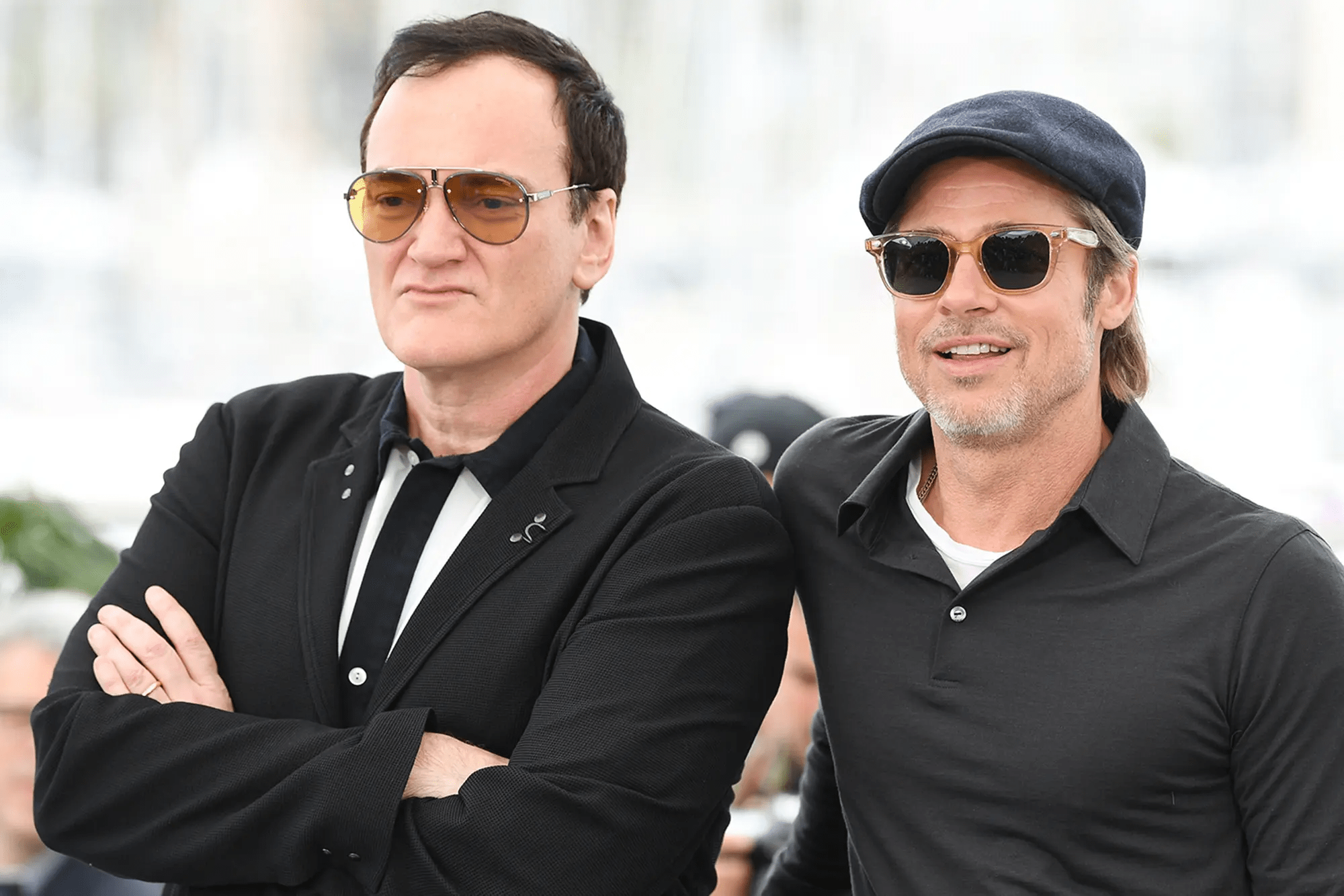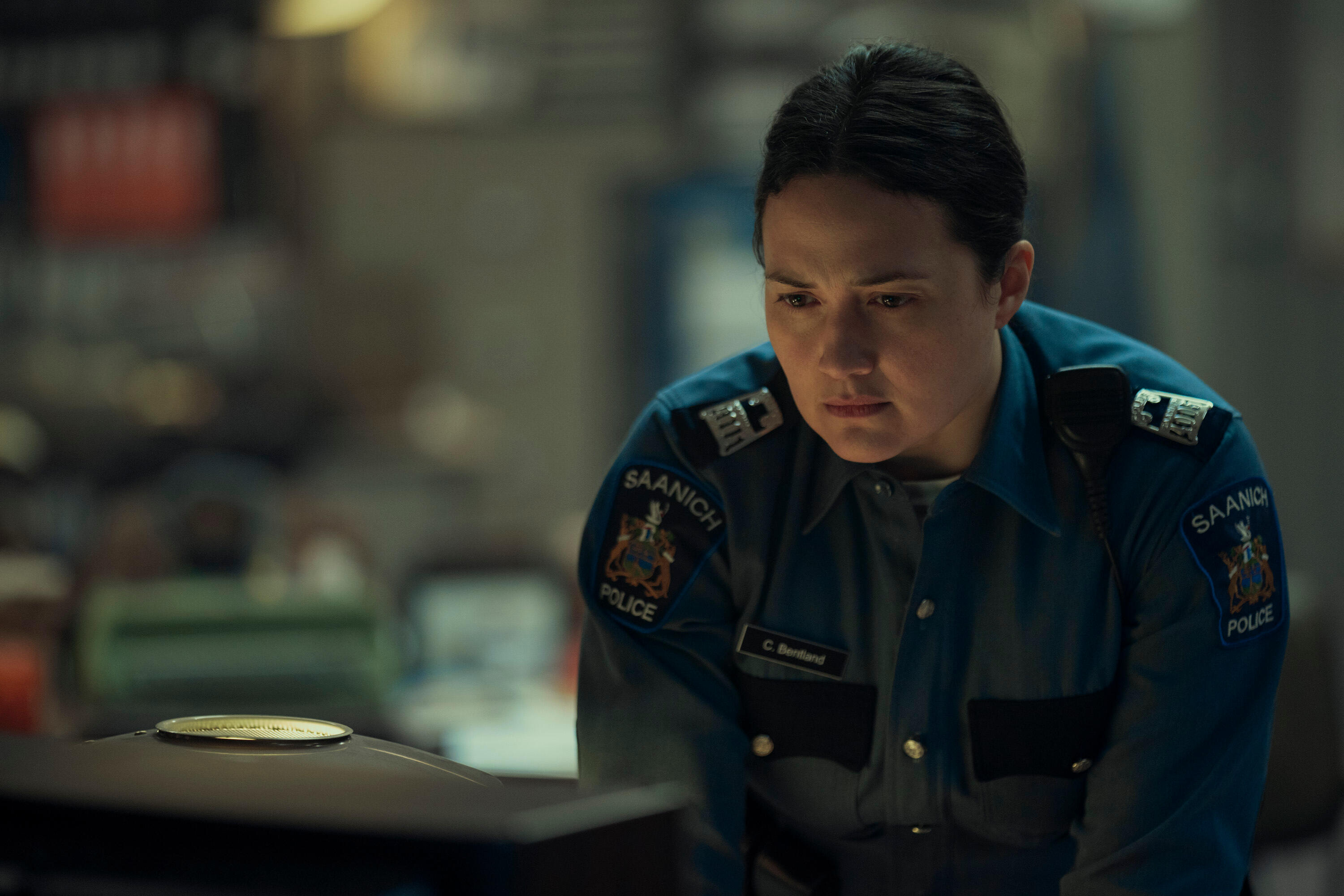‘The Last Jedi’ Novelization Author On the Writing Process, the Movie, and Actors’ Takes on Character Arcs
Jason Fry has written for Star Wars for a long time now, having worked on several books before and after the Lucasfilm acquisition by Disney in 2012. Perhaps the title he’s most known for of late is the novelization of Star Wars: The Last Jedi, titled The Last Jedi: Expanded Edition (make sure to check out here some additional details that were included in the novel that were not in the movie). Recently, he was part of a Q&A with Reddit users from r/adamdriverfans, where they asked him a lot of questions about his process working on the novel, as well as the collaboration process with the filmmakers. The author himself confirmed on Twitter this was him, congratulating Reddit users on their questions.
Fry was approached to do the project in summer 2016, though he can only guess why Lucasfilm picked him:
“I’m not sure why Lucasfilm chose me, to be honest. I’d like to think it’s because they saw that the Force was going to play a huge role in the movie, almost as if it were a character in its own right, and they thought I could bring an interesting perspective to that based on the books and stories I’d written for them.
In 2015, with the “Journey to The Force Awakens” publishing program, I’d written The Weapon of a Jedi, which was a quiet, fairy-tale-style story about Luke learning to understand the Force’s essential nature and connect with it. I regard Weapon as basically my prequel to the [‘The Last Jedi’] novelization – it was my boot camp for understanding Luke Skywalker, who’s an elusive character and hard to get right, and for understanding the Force. I couldn’t have written the [‘The Last Jedi’] novelization without that experience.”
Perhaps one of the most appealing questions to ask any writer in charge of the novelization of a Star Wars movie is how does work start? Did he see the movie and then start typing it out? Apparently, not. In fact, his only reference point was a copy of the script of the movie, which wasn’t even the final draft. As he explains it:
“I didn’t even see the movie until a month or two before it opened, which was after I’d completed my first draft of the novelization. And once the movie was actually out we were in the proofreading stage. I was able to tweak a few things based on repeated viewings of [‘The Last Jedi’] at my Alamo Drafthouse, but those changes had to be minimal.
The preview screening I got was a funny experience – I saw it in a screening room at Disney in Burbank, and I was frantically taking notes, because the first thing I noticed was the script I’d relied on hadn’t actually been the final script. The sequence of scenes in the first part of the movie had been reworked quite a bit. So I was a little panicked, and it was pitch black in the screening room, and I was scribbling notes about everything I had to change in a notebook I couldn’t see.”
Apparently, director Rian Johnson was a huge help for him during the writing process:
“Anyway, the process began with adapting the script, and I got a real break there: Rian Johnson had a soft spot for novelizations, having depended on them as a kid as his way to experience movies he wasn’t allowed to see. One of the first things Rian did was give me all the previous iterations of his script and tell me I could use anything from those earlier versions that I thought worked. That was really generous of him – a lot of writers would have been very protective of those earlier drafts – and it gave me a goldmine of additional material to use.”
He doubled down praising Johnson, who apparently gave him one of his favorite pieces of advice ever:
“I sat down with Rian in the summer of 2017 at Skywalker Ranch and talked through the major themes, the character arcs and the tone he wanted. That was a big help. In talking tone, Rian told me something that’s become one of my writing commandments. He noted that there are big, fateful events in [‘The Last Jedi’], but he always tried to follow one of those scenes with something light that gave the audience that Flash Gordon space opera feel. He called that ‘lift, not drag,’ an expression I loved and have tried to keep in mind for all my projects since then.”
According to Jason Fry, the hardest scenes to pull off in The Last Jedi novelization were not the huge, crazy action sequences we see in space or the lightsaber battle in Snoke’s Throne Room, but perhaps the quietest moment in the movie (except for the one silent moment, of course) — in particular, the scenes that enraged a lot of Star Wars fans all around the world. (Sidebar: Rashomon is an Akira Kurosawa movie from 1950 that heavily influenced this part of the movie).
“The most interesting challenges in the adaptation were probably the ‘Rashomon’ scenes of what happened between Luke and Ben the night the temple was destroyed and the voiceover that bridges Rey’s experience in the cave and the fingertips scene with Kylo.
For the former, I tried to keep the language parallel so the differences really stood out, which was a relatively straightforward call. But that voiceover was a huge challenge. As movie fans, we understand what a voiceover is – it’s a jump forward in time through the narrator reflecting on a pivotal moment. In the movie, that leads to a visual surprise – we anticipate that Rey’s discussing her experience with Luke, only to find out the person she’s talking to is Kylo.
Do you see the problem? That’s the language of film, not text. I had to re-engineer that sense of surprise so it would work on the page. I’m proud of how I solved that one, but it took a day or two of pacing around and muttering to find the answer.”
A question often asked of novelization authors is how much freedom do they have to pitch their own ideas and add their own input into the story? Here’s Fry’s extensive answer:
“I had a lot of freedom to do that – but those ideas had to support Rian’s story instead of just being things I thought would be cool. That was a big early lesson of the job – to put your ego aside as a writer. I told myself to think of it as a job that I only got because Rian was too busy writing and directing the movie to write the novelization himself. To see myself as a pinch-hitter, essentially.
The non-movie material in the novelization came from a number of sources. The prologue was my idea, which I pursued because I thought it deepened the idea of the Force as almost a character. Luke has cut himself off from it, but it’s not like the will of the Force is going to stand down and accept that. It’s going to try to get through Luke’s defenses and make him listen. So how would that work? Well, when are we most vulnerable? When we’re asleep, and dreaming. The prologue isn’t a vision of a peaceful life in which Luke never became a hero – it’s the Force telling him he’s made a mistake and that the peace he’s found in exile is illusory, because the galaxy needs him.
I also liked that because it let me start with Luke, and give us a little peek inside his head. I wanted to do that because for most of the movie we’re getting Rey’s point of view, not Luke’s – Luke is a riddle she’s trying to solve. My job was to be true to that, which meant I couldn’t be in Luke’s head, at least not until Rey leaves Ahch-To and Luke opens himself to the Force. By stepping back in time, I was able to give the readers a little tease about what they most wanted coming out of [‘The Force Awakens’].”
He continued to describe a few other scenes from the novel that came from his mind, or late-in-the-game inputs from people around him:
“So that was mine, as were some other things, such as the little postscript scene of the fish-nuns packing Luke’s stuff away. But other scenes emerged collaboratively – my wonderful editor Elizabeth Schaefer and I decided we wanted to see Han Solo’s funeral, for instance – or came from Lucasfilm. A lot of people’s favorite scene in the novelization is the little scene between Leia and Chewie, when she finally breaks down and he comforts her. That one was an 11th-hour request from Jen Heddle and Mike Siglain at Lucasfilm – and I do mean 11th hour. We were in page proofs by then, basically out of time, and I admit my first reaction when they told me they wanted one more scene was, “You’ve got to be kidding me.” Then they explained the scene they had in mind and I thought it was perfect and felt so lucky that I’d get to write it. And then I got nervous because I didn’t want to screw it up.
And of course we had the deleted scenes that showed up on the Blu-Ray, and a couple of other things. The “father-daughter dance,” for instance, was from an earlier version of the script, and I got why it wouldn’t have worked on screen but thought it was odd, lovely moment that might work in the book.
The craziest thing I tried was to use an earlier version of Finn and Rose meeting the Master Codebreaker on Canto Bight. In that version, they join him for an attempted heist, but he immediately gets captured by the cops and carted away in a net, after which Finn and Rose are hauled off to jail. It’s a very funny record-scratch moment, and I thought it would great to use it instead of the version from the movie.
And that was the way it was written until the final weekend, when Story Group asked me to take that out and use the movie version instead. In hindsight, that was the right call – an alternate scene was too much of a departure for a novelization. But it was a great scene, which I hope sees the light of day at some point.”
Fry goes on record to give his personal thoughts about the movie itself, The Last Jedi:
“[‘The Last Jedi’] is my favorite movie of the sequel trilogy by far, but of course it’s also the one I embedded with as my own personal project. So sometimes I wonder how much that experience has shaped my feelings about it.
That said, I remember being struck by the experience of watching it that first time, even though I was scribbling notes about all the things I needed to fix. There were so many stunningly gorgeous shots – Paige’s face as the bombs fall below her, Leia at the doors on Crait, the red lines carved in the salt by the ski speeders … to name just three.
I was also struck by something that’s stayed with me, and that I guess failed to connect with people for whom the movie doesn’t work. (Which is fine if you feel that way!) [‘The Last Jedi’] is not exactly your typical popcorn film – it challenges the audience’s assumptions, with its core message being “this is not going to go the way you think.” I think some people who dislike the movie only connected with that part of the story, and left feeling dissatisfied. And if I felt that was all that was going on in [‘The Last Jedi’], I’d feel the same way. But to me, [‘The Last Jedi’] challenges our assumptions about heroism but then winds up reaffirming its importance. Luke asks Rey dismissively if she thinks he’s going to walk out with a laser sword and take on the entire First Order himself, and at the end of [‘The Last Jedi’] that’s exactly what he does.”
Jason Fry was also asked about Hux, a character that, according to him, was drastically changed in the sequel to this movie:
“They’re a great tandem similar to Motti and Vader in [‘A New Hope’] – technological prowess vs. the power of the Force. I found [‘The Rise of Skywalker’]’s handling of Hux strange. Why was Richard Grant’s character brought in and Hux demoted to comic relief? Why wasn’t Hux the one to hitch his star to Palpatine and the Final Order in an effort to outflank Kylo?”
Whether you agree with his take or not, the comparison between Hux and Motti is an interesting one, especially since we’ve always been talking about Hux as the new Tarkin.
Perhaps one of the most interesting takes given by Jason Fry on this Q&A came when he was asked about the actors’ involvement in his story. He quickly responded that indeed, no actor had anything to say about their arcs in the novel. The only person who could have told him anything was writer and director Rian Johnson, who offered any help he needed. However, Fry decided to leave him alone after he’d completed a $200 million Star Wars movie. Fry had this to say about actors’ takes on their characters:
“I’m resistant to the popular idea that actors know their characters best and deserve some kind of veto power over their actions. Actors’ opinions are of course important, particularly with regards to how a character reacts or a line reading or something like that – witness Carrie Fisher’s dead-on complaint about Leia turning mute after Jabba chains her up in ROTJ. But character arcs and overall storytelling strike me as different animals. It’s only natural for actors to get protective of their characters or to try and center them in the narrative, and that’s not always what the story needs. That dynamic was what Mark Hamill was talking about when he said he didn’t recognize [‘The Last Jedi’]’s Luke at first. It’s a quote that [‘The Last Jedi’]’s detractors love to cite, but they leave out Hamill admitting he came to understand what Rian was after with the character.”
But he talked about many more people than Mark Hamill:
“Along the same lines, I think the world of John Boyega, who’s a wonderfully dynamic actor and someone whose voice Hollywood needs to listen to. But I also think his criticism of Finn’s storyline in [‘The Last Jedi’] is misplaced. I think [‘The Last Jedi’] did a good job with Finn, and what fans who dislike his storyline are missing is that it’s a middle chapter – all complications and reversals and missteps, particularly for Finn. Finn is a remarkable character whom I’ve called the conscience of the sequel trilogy, a child soldier with a moral compass strong enough that he shakes off his programming and refuses to kill for the First Order. But he’s also in search of an identity after making that decision. In [‘The Force Awakens’] he devotes himself to Rey, and that’s where he still is in [‘The Last Jedi’]. His new friends expect him to dedicate himself to the Resistance, but that’s the last thing he wants – he just stopped being a soldier for a cause, and he’s not signing up to do that again.
Which is what makes his relationship with Rose so interesting. She’s lost her sister, the person who meant everything to her, and she pours her grief into devotion to the cause they both served, at the expense of everything else. She’s angry with Finn because he’s doing the opposite. Because she doesn’t understand what he’s been through, she sees his devotion to Rey as selfishness. So they spend the movie talking past each other, until finally they connect and help each other out of their respective ruts. Except they overcorrect, with Finn now willing to die for the cause he’s rejected and Rose trying to save Finn even if it hurts the cause she’s served. It’s funny and touching and very human, and leaves them in a really interesting place at the end of [‘The Last Jedi’]. Their complications aren’t completely resolved, because that’s not the job of a middle chapter, but they’ve worked through their issues and come out wiser and stronger and ready to take the next step.”
However, it isn’t all flowers to Finn and Rose in The Last Jedi, because Fry also had some reservations about some particular moments:
“That isn’t to say [‘The Last Jedi’] handles Finn perfectly – I would have dropped the line about Finn being the guy who used to mop a Star Destroyer, because it feels like it’s making fun of him and undermines what I talked about above. But that aside, I think [‘The Last Jedi’] is a solid middle chapter, and it’s ‘[The] Rise of Skywalker’ that didn’t stick the landing. That movie tosses Finn and Rose’s relationship overboard in a way that felt disrespectful to me, and it sketches out an interesting story for Finn but does very little with it. It’s intriguing that he meets a bunch of other former child soldiers who deserted the First Order, but that’s about all we get – they’re a little band instead of, say, a fifth column that undermines the First Order by convincing its soldiers to follow their lead. There were some fascinating possibilities there, but the movie barely explored them. Finn’s one of my favorite characters, but I think he got shortchanged in [‘The Rise of Skywalker’], not [‘The Last Jedi’].
(BTW, if you loved [‘The Rise of Skywalker’] and hated [‘The Last Jedi’], or vice versa, or loved both or hated both, more power to you. Like what you like and don’t listen to me.)”
When asked about the hardest characters and character arcs to write, Fry looks back on his experience writing for all of the main players in The Last Jedi:
“Favorites? Finn, for all the reasons above, and Luke, and I worked really hard on Leia, who’s a character I’ve looked up to since I was an eight-year-old kid. Plus I loved writing scenes from BB-8’s perspective, and getting into Snoke’s machinations, and giving Holdo a grace note with her sacrifice, and so much besides. I had a lot of favorites!
The hardest was probably Poe, because I didn’t really have his arc as clear in my head as I should have, and feel I could have done more there. And I wish I’d been more careful with writing Rose’s attitude towards Rey. I was criticized, and justifiably so, for writing Rose as jealous of Rey. To be clear, I do think Rose is a little jealous of Rey, and that’s only human. But that’s not what really makes her mad – it’s more that she’s angry that Finn’s devoted to a person instead of the larger cause. I didn’t understand that jealousy between female characters is a really toxic trope – it was a blind spot for me as a writer. if I had understood that, I would have worked to give those scenes more nuance and put the emphasis where it belonged. I did my best to listen and learn so I don’t do that again, but the lesson came a little late for the novelization.”
As for the easiest scene for him, that’s an easy question:
“The easiest character to write? There’s an interesting story there. I had a big Excel sheet of all the scenes in the novelization, and one that I put in bold letters was Luke dying and passing into the Force. I always knew how far away I was from that scene, because it was so pivotal and such a huge responsibility – I mean, this is the death of Luke Skywalker, and I was going to be writing the novelization version of it.
I was super-nervous about that one, and when I finally got to it, I thought it would take me all day and maybe it wouldn’t come out right and I’d get stuck there. But I was in and out of the scene in like 10 minutes, and I read what I’d written and it was exactly what I wanted. That was weird, and it took me a while to understand what had happened. I’d been subconsciously rehearsing that scene in my head throughout the entire project, and the little elves down in the engine room of my brain had already put in the work. So the actual writing was no trouble at all.”
He was then asked about Ben Solo and his relationship with Luke. When answering that, he couldn’t resist gushing over the return of Harrison Ford’s Han Solo via Ben’s memory as the final step in his return to the light:
“I think Ben is disappointed by all his father figures, which is a part of what fuels his rage. He sees Han as a scruffy criminal, Luke as a jealous rival and Snoke as an uncaring manipulator. He rejects all these father figures as wanting and can’t fill the void that’s left — until he reaches that pivotal moment on Kef Bir.
I argue with some of [‘The Rise of Skywalker’]’s storytelling choices, but that scene of Ben and the vision of Han is pitch-perfect. It’s sweet and unexpected and beautifully played, and restores Han to the father-figure role in Ben’s mind. That moment gets combined with Leia’s pouring herself into the Force to tell Ben she loves him and Rey healing his mortal wound. It’s a trio of selfless acts for a person who’s convinced himself he’s undeserving of love and compassion, and who’s been poisoned by that. Those acts free him, banishing Kylo and restoring Ben, and point him towards the path he follows for the rest of the story. It’s my favorite sequence in [‘The Rise of Skywalker’], because it gives us all the core values of ‘Star Wars’ – compassion and sacrifice, family and forgiveness.”
He added that he believes we will see, at some point in the future, the full story behind Ben Solo turning into Kylo, and that he’d love to write it, naturally. A few questions about Kylo’s mind followed up. For example, he weighed in about how Kylo Ren is not a particularly reliable narrator:
“One thing I wish had come across more clearly is that when we’re in Kylo’s head, we’re getting his truth, and as the [‘The Last Jedi’] ‘Rashomon’ scenes show us, that shouldn’t be considered the objective truth. Kylo is not a reliable narrator on such matters. That isn’t to dismiss or diminish him – none of us are completely reliable narrators about the issues where we need the most help. That ambiguity is part of what makes the character so compelling.”
The sequel to the story had the final part of Kylo’s arc in the trilogy, in which the character turned back into Ben Solo. To some people, that came as a surprise given where we left him in The Last Jedi. Here’s what Fry had to say about it:
“[At the end of ‘The Last Jedi’] He’s won a battle but lost his personal war, and is adrift. The Resistance has escaped, his chance at vengeance has been lost (complete with the great “no dice” joke when they disappear in his hand), and Rey has severed the connection between them. As I wrote in [‘The Last Jedi’], the Force isn’t done with him. He’s got to find a new path. One of my issues with bringing back Palpatine as ROS’s big bad is that it interrupts that journey. Kylo’s story became reactive when it deserved to be proactive.”
One of the fan theories circulating as the sequel trilogy was unfolding was that Rey would eventually fall to the dark side. Fry didn’t really see it that way:
“I never saw Rey as fated to fall; her journey is about finding something “so much bigger,” which is what Luke is trying to point her towards. His mistake is thinking that the way to bring whatever that is to life is to withdraw and leave the galaxy to its fate. In fact, the Force isn’t done with him just yet. He still has a role to play.”
The Last Jedi had some interesting parallels to previous entries in the Star Wars franchise, and Fry talked about one of them. About Luke’s vision of Kylo falling to the dark side, he said:
“For me, it goes all the way back to Anakin Skywalker in ‘Episode I,’ and Qui-Gon telling Shmi that he can see things before they happen. That’s why Anakin’s a great podracer – it’s not that he has superhuman reflexes, but that the Force lets him react to events before they occur. It’s Anakin’s tragic gift, and a key part of his fall in Episode III – which unfortunately the movie doesn’t emphasize the way it could have. If you’re not super-versed in Star Wars lore, Anakin’s issues in Episode III come across as his being spooked by a bad dream and PO’ed about not getting a full Jedi promotion, which feels petty. In fact, Anakin knows his vision of Padmé dying in childbirth isn’t merely a dream, because he’s seen the future his whole life.
Luke, of course, is Anakin’s son. He sees the destruction and pain that Ben will cause, and reacts instinctively and badly, in a way that fractures their relationship. Ben sees what Luke has seen, and knows what Luke knows. And because they’re Jedi, they both know the import of that. It’s very Greek tragedy.”
In the Throne Room, Kylo asked Rey to partner with him and leave everything else behind. Fry commented on this moment, and what it meant for both characters:
“It wasn’t clear to me, because at that moment I don’t think it’s clear to Kylo. He sees Rey as a partner in the Force, absolutely, and there’s obviously this incredibly powerful connection between the two of them. But Kylo’s still working through his own issues there, including what that connection means to him.
He tries to use Rey, which is why she’s so disappointed in him – she thought she could bring him back to the light, and the first thing he does after she thinks she’s succeeded is to try and make her a partner in his ambitions, or maybe just a lieutenant. (I love how quietly Daisy Ridley plays that scene, by the way.) Now, that’s not entirely Kylo’s fault – it’s what Snoke’s done to him and what he thinks Luke has done to him, so he’s perpetuating a destructive cycle by trying to do it to Rey. But regardless, it’s what he’s doing.”
That connection between the two was defined in The Rise of Skywalker as a dyad in the force. Fry didn’t know about that back when he wrote the novel:
“The nature of that connection was a really interesting question at the end of [‘The Last Jedi’]. [‘The Rise of Skywalker’] gives us an explanation for what it is, but as far as I know it hadn’t been defined yet when [‘The Last Jedi’] was finished. Or maybe it had been but no one told me. Whatever the case, I wrote the novelization with an eye towards keeping all the possibilities open.
Leaving aside [‘The Rise of Skywalker’]’s answer for the moment, that connection goes back to The Force Awakens, when Kylo tries to pry open Rey’s mind and instead lets her into his own. That’s pivotal for both of them – it unlocks Rey’s nascent power, because she sees how Kylo can do what he does, but it also leaves Kylo’s deepest fears and insecurities open to her.”
He also added later that he had no idea what the plans for The Rise of Skywalker were. He concluded by answering whether or not, based on the events prior to Episode IX, if he saw the fate of Kylo Ren/Ben Solo coming:
“While I didn’t see the scene on Kef Bir coming – which is one reason I love it so much – Ben’s ultimate fate unfolded pretty much as I’d guessed it would. For those who found that ending unsatisfying, I’d offer this as potential comfort: Kylo Ren wants desperately to follow the path of Darth Vader, but Ben Solo winds up following the path of Anakin Skywalker, making a sacrifice out of love to save the galaxy. I like the symmetry of that and find it very Star Wars.”
And so concluded the Q&A. Novelizations of the Star Wars films have a long history, and it is always good to get insight into the creative process of adapting these massive movies into their novel counterparts from the writers themselves. While we included most of the Q&A here, for the entire set, head to the link to Reddit at the top of the article.
Miguel Fernández is a Spanish student that has movies as his second passion in life. His favorite movie of all time is The Lord of the Rings, but he is also a huge Star Wars fan. However, fantasy movies are not his only cup of tea, as movies from Scorsese, Fincher, Kubrick or Hitchcock have been an obsession for him since he started to understand the language of filmmaking. He is that guy who will watch a black and white movie, just because it is in black and white.

